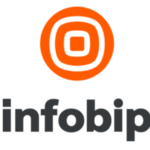Global Talent at Your Fingertips: How Technology Is Revolutionizing Hiring Practices

The digital age has redefined what it means to source, evaluate, and hire talent. Today, employers are no longer confined to local job markets, but instead have access to a global pool of skilled professionals. Technology, particularly Artificial Intelligence (AI) and advanced data analytics is enabling organizations to access the right talent swiftly and with higher precision. This move is not just about convenience—it is about building diverse, capable teams that drive business success.
Challenges in Recruitment
Recruiting talent is not without its hurdles, and the numbers reflect these challenges. According to a recent report from ManpowerGroup, 75% of employers are currently struggling to fill job vacancies. This shortage has only intensified since 2015, when just 38% of employers faced hiring difficulties. Given this increasing demand for skilled labor, the focus has turned toward leveraging technology to optimize recruitment processes.
Organizations are adopting AI-powered recruitment technologies at an unprecedented rate. This market, currently valued at $661.5 million in 2024, is expected to grow to $1.1 billion by 2030, according to Maximize Market Research. AI-driven solutions not only address the growing labour shortage but also bring efficiency and accuracy to each stage of the hiring process.
AI-Powered Screening and Selection
One of the most time-consuming tasks in recruitment is screening resumes—a responsibility that AI has made significantly easier. A study by Talent Board and Phenom highlights that AI-powered tools can reduce the time spent on résumé review by up to 75%. This technology eliminates repetitive tasks and allows recruiters to focus on more strategic aspects of hiring, like candidate engagement and cultural fit. By reducing manual processes, companies gain speed without compromising the quality of hires.
AI’s impact extends beyond screening to interview scheduling. A separate study by Phenom found that companies using AI to schedule interviews saved 36% of their time compared to those relying on manual processes. As such, AI-powered scheduling has helped streamline recruitment efforts, especially in fast-paced hiring environments. These efficiencies translate to cost savings and faster time-to-hire, allowing companies to remain competitive in an increasingly dynamic market.
Bridging Geographical Gaps
With advances in technology, companies now have a wider reach, enabling them to recruit talent from virtually any corner of the globe. The pandemic accelerated remote work adoption, and now, global hiring is a key part of business strategies. AI-based platforms are designed to navigate different languages, cultural nuances, and regional hiring practices, making cross-border recruitment seamless. This shift allows businesses to hire the best talent, regardless of where they are located, and to diversify their workforce in meaningful ways.
Diversity, particularly at executive levels, has been shown to benefit companies financially. According to McKinsey research, companies with strong gender diversity on their executive teams are 25% more likely to achieve above-average profitability than their less-diverse peers. The use of technology in recruitment is a driving force in ensuring that companies can attract and retain diverse talent, ultimately leading to greater business success.
Data-Driven Insights for Hiring Accuracy and Retention
One of the most transformative aspects of AI in recruitment is the use of people analytics, which gives recruiters and HR teams data-backed insights to make better decisions. McKinsey’s research reveals that organizations leveraging people analytics experience an 80% increase in recruiting efficiency, a 25% rise in business productivity, and a 50% reduction in attrition rates. People analytics enables a deep understanding of which hiring methods work best, which candidate profiles tend to succeed, and how recruitment processes can be continually improved.
Predictive analytics can identify candidates likely to stay with an organization long-term, helping companies avoid costly hiring mistakes. Additionally, AI-based sentiment analysis tools evaluate a candidate’s enthusiasm and fit, providing recruiters with an additional layer of understanding. These insights help create a more objective, reliable recruitment process, reducing biases that may otherwise impact hiring decisions.
Role of Generative AI
Despite its benefits, generative AI remains underutilized in recruitment. According to LinkedIn’s Future of Recruiting survey for 2024, 62% of talent acquisition professionals express optimism about AI’s potential, yet only 27% are currently experimenting with generative AI. Generative AI could potentially transform hiring by creating customized resumes, generating job descriptions, and providing candidate insights tailored to specific roles. By automating these tasks, recruitment teams can spend more time building relationships with candidates and fostering a positive hiring experience.
Generative AI tools also improve candidate engagement by enabling personalized interactions and timely follow-ups. In a competitive job market, candidates are more likely to choose organizations that provide a smooth, personalized application process. AI can also help simulate real-world scenarios during interviews, allowing recruiters to assess a candidate’s problem-solving abilities in ways that go beyond traditional question-and-answer formats.
Conclusion
As recruitment evolves, it is clear that AI and data-driven strategies are crucial for meeting today’s talent demands. By reducing inefficiencies and offering global access to talent, technology-driven recruitment tools empower companies to build teams that are not only skilled but also diverse and resilient.
Author: Siddhartha Chandurkar, Founder and CEO, talentanywhere.ai by ShepHertz
Disclaimer: The views expressed in this article are solely those of the author and do not necessarily reflect the opinions or policies of ObserveNow Media. The author is solely responsible for ensuring the accuracy, completeness, and validity of the information presented, encouraging readers to independently verify and seek professional advice if needed.
















